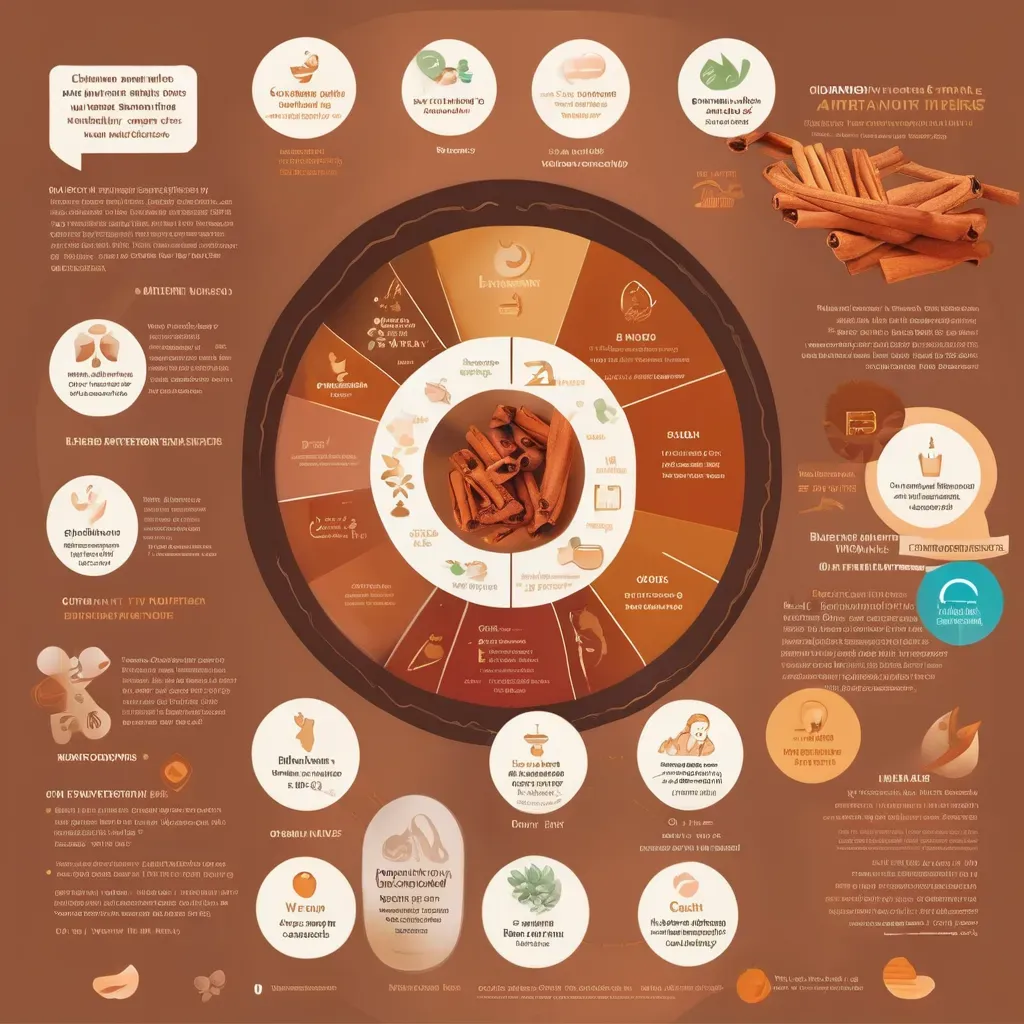Cinnamon is a popular spice known for its delightful flavor and numerous health benefits. Many breastfeeding mOthers often wonder: can I consume cinnamon while breastfeeding? Is it safe to introduce cinnamon into my diet through cooking or as a supplement? This article provides essential insights into cinnamon breastfeeding, highlighting both the benefits and risks associated with this aromatic spice.
Understanding Cinnamon and Its Nutritional Profile
Cinnamon, derived from the bark of cinnamon trees, is rich in essential oils, antioxidants, and anti-inflammatory compounds. The two most common types are Ceylon (true cinnamon) and Cassia cinnamon, which differ slightly in flavor and chemical composition. Below is a table that illustrates some key nutritional components of cinnamon:
| Nutrient | Amount per 1 tsp (2.6 g) |
|---|---|
| Calories | 6 |
| Carbohydrates | 2 g |
| Fiber | 1 g |
| Calcium | 26 mg |
| Iron | 0.1 mg |
| Manganese | 0.1 mg |
| Antioxidants | High |

Benefits of Cinnamon During Breastfeeding
-
Anti-Inflammatory Properties: Cinnamon contains significant amounts of antioxidants and can help reduce inflammation, which is beneficial for nursing mothers experiencing postpartum body changes.
-
Antioxidant Boost: Rich in polyphenols, cinnamon helps combat oxidative stress. This can be particularly useful for mothers looking to maintain optimal health while breastfeeding.
-
Blood Sugar Regulation: Some studies suggest that cinnamon may help regulate blood sugar levels, which can aid nursing mothers in maintaining energy levels throughout the day.
-
Flavor Enhancer: Incorporating cinnamon into meals—such as oatmeal or smoothies—can make them more appealing without adding high-calorie sweeteners.

- Lactation Support: While not universally accepted, some anecdotal evidence suggests that cinnamon may have positive effects on milk production for some mothers, although scientific backing is limited.
Reference Video
Risks of Consuming Cinnamon While Breastfeeding
However, it’s essential to approach cinnamon consumption cautiously due to potential risks:
-
Allergic Reactions: Some infants may experience allergic reactions to cinnamon, leading to rashes, digestive issues, or respiratory problems.
-
Blood-Thinning Effects: Cinnamon has natural anticoagulant properties, which could pose risks if the mother has bleeding disorders or is taking blood thinners.
-
Impact on Milk Supply: Although small amounts of cinnamon in cooking are generally considered safe, excessive consumption or high-dose supplements may negatively impact milk supply.
Here is a summary comparing the views on cinnamon during breastfeeding:
| Perspective | Description |
|---|---|
| Safe in Cooked Amounts | Moderation in cooking poses minimal risk. |
| High Doses Risky | Large quantities or supplements may lead to negative effects. |
| Monitor Infant Reactions | Pay close attention to any reactions from the baby. |
Safe Consumption Guidelines for Nursing Mothers
To incorporate cinnamon safely into your breastfeeding diet, consider the following guidelines:
Start with Small Quantities
Begin by incorporating small amounts of ground cinnamon into your meals. Monitor your infant’s reactions over a few days before increasing the dose.
Limit Supplements
While some benefits may be associated with Cinnamon Supplements, they can pose risks. Consult your healthcare provider before taking any cinnamon supplements while breastfeeding.
Avoid Excessive Use
Caffeine, alcohol, and sugar-laden foods are typically discouraged for nursing mothers. Similarly, be cautious about using larger amounts of cinnamon in attempts to boost your health.
Consult Healthcare Professionals
Always consult with a healthcare provider or lactation consultant if you have concerns about your diet while breastfeeding. They can provide personalized advice that considers your medical history and specific needs.

Frequently Asked Questions (FAQs)
Can I drink cinnamon water while breastfeeding?
Drinking cinnamon water in moderation is generally considered safe for breastfeeding mothers. Ensure that you are not consuming excessive amounts.
Will cinnamon affect my milk supply?
Limited research suggests that cinnamon doesn’t typically affect milk supply negatively when consumed in normal cooking amounts. However, excessively high doses could potentially impact supply.
Should I avoid cinnamon altogether while nursing?
You don’t need to avoid cinnamon altogether. Moderation is key. Pay attention to any adverse reactions from your baby and adjust your intake accordingly.
Are there safer alternatives for flavoring food?
Yes, alternatives like vanilla extract, nutmeg, or ginger can add flavor without the potential risks associated with cinnamon.
What should I do if I notice a reaction in my baby after consuming cinnamon?
If your infant shows signs of allergic reactions or digestive problems after you’ve consumed cinnamon, refrain from consuming it and consult a pediatrician.

Conclusion
In summary, cinnamon can offer several health benefits for breastfeeding mothers when used in moderation. Recognizing both the potential pros and cons is essential for ensuring both maternal health and infant safety. As a nursing mother, it’s always prudent to consult healthcare professionals regarding dietary choices. Embrace flavor while being mindful of your and your baby’s well-being.
For additional information about the safety of cinnamon during breastfeeding, visit Cappuccino Oracle’s guide on safe cinnamon use.
